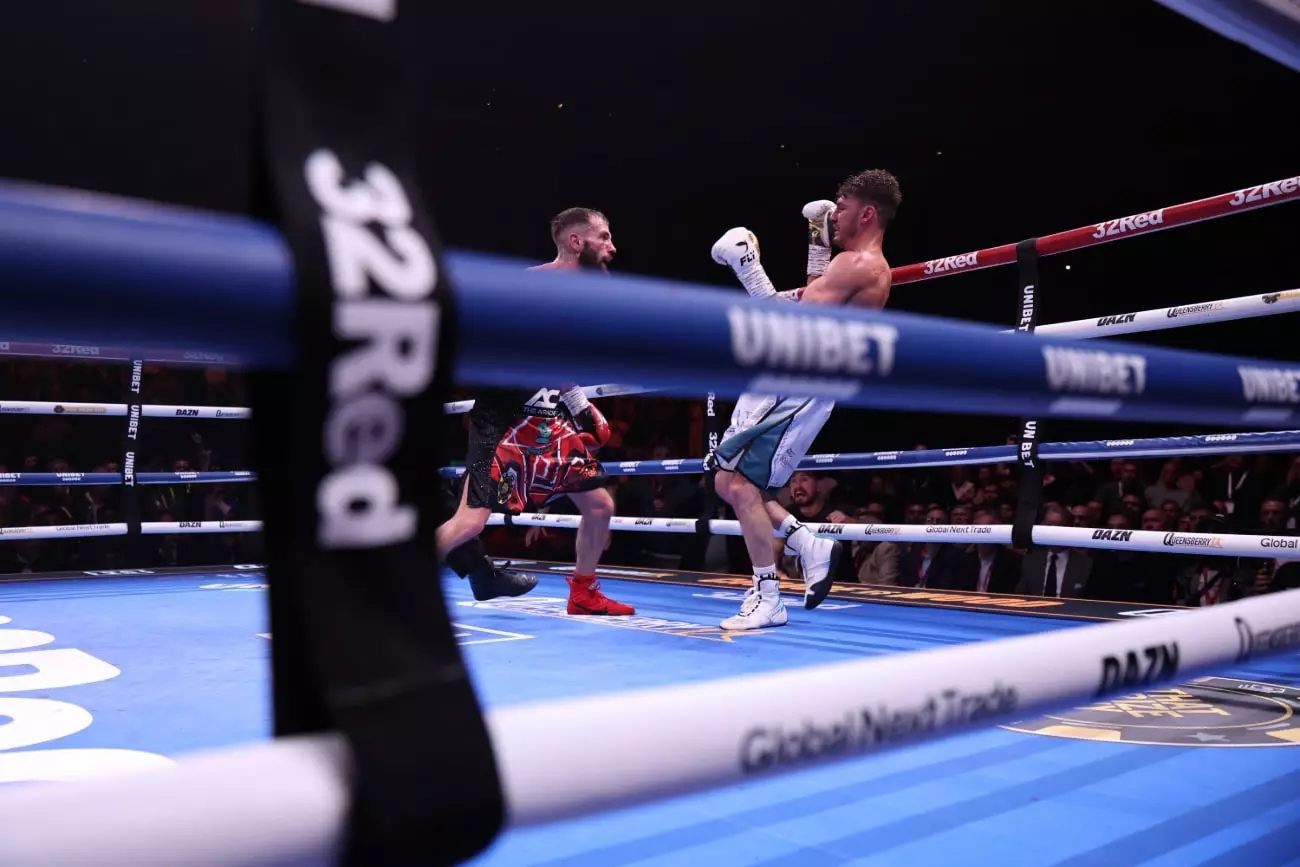On a night that promised to deliver excitement, IBO super featherweight champion Anthony Cacace showcased his boxing prowess in a dazzling performance against former two-time WBA champion Leigh Wood at the Motorpoint Arena in Nottingham. With a decisive ninth-round TKO, Cacace solidified his reputation as not only a champion but a master tactician in the ring. This showdown served as a stark reminder of the differing trajectories of the two fighters, highlighting Cacace’s technical superiority and Wood’s struggles.
Cacace’s Unrelenting Strategy
Cacace’s approach was nothing short of clinical. From the very first round, he employed a well-calibrated strategy that blended aggression with technical finesse. His use of the jab was a key factor, keeping Wood at bay and setting up opportunities for more powerful strikes. Cacace’s ability to switch stances and then unleash devastating uppercuts was nothing short of artistry. Each round revealed a fighter who was not just fighting to win but fighting to demonstrate his point—a message that he is a force to be reckoned with in the super featherweight category.
In contrast, Wood appeared to struggle with his form after a lengthy 19-month layoff. The ring rust was palpable, and it showed in his timing and coordination. As Cacace systematically dismantled his defense with a flurry of punches, Wood’s attempts to find his rhythm felt futile. The former champion looked like a man trapped in a time warp, unable to advance while facing an opponent who seemed ten steps ahead.
A Trainer’s Dilemma: Ben Davison’s Decisions
One of the more striking aspects of the bout was the corner dynamics between Leigh Wood and trainer Ben Davison. In post-fight comments, Davison maintained a sense of optimism about Wood’s performance, even suggesting that the eighth round had been a turning point. This perspective raises questions about the dynamics within the corner and whether they accurately gauge the fight’s momentum.
Davison’s insistence that Wood was performing adequately seemed out of touch with the grim reality of the fight. As Cacace unleashed barrage after barrage, Wood’s demise was evident, culminating in Davison throwing in the towel to protect his fighter. In hindsight, this protective move was not just wise; it was necessary. The respect for a fighter’s safety should always come before anything else, no matter the dreams of glory or potential financial windfalls.
The Price of Timing and Opportunity
Leigh Wood’s decision to face Cacace right off a lengthy break was likely driven by financial incentives rather than calculated risk management. While it is understandable in the sport to seek lucrative opportunities, there’s a fine line between business decisions and safeguarding one’s career. Stepping into the ring against a champion of Cacace’s caliber without preparatory bouts was a gamble that did not pay off.
If Wood had taken the time to re-establish his rhythm through one or two tune-up fights, the outcome may have been dramatically different. The disparity in their preparation and timing led to a fight where Wood was outmatched in skill and stamina. It underscores a crucial lesson in boxing—facing an elite challenger ill-prepared can lead to devastating consequences.
A Vision of the Future
Looking forward, Cacace’s victory is more than just a singular achievement; it establishes him as a dominant figure in the super featherweight ranks. His technical precision and relentless drive position him as a fighter to watch, potentially setting up future matches against other prominent names in the division, including potential showdowns that fan the flames of rivalry.
Conversely, Leigh Wood faces an uncertain path ahead. His confidence will undoubtedly be shaken after this defeat, and the road to redemption will require not just skill, but strategic deliberation on future matchups. The boxing world is unforgiving, and it will be intriguing to see if Wood can regain his footing and rise once again from the ashes of this tough bout.
The fight between Cacace and Wood serves as a dramatic reminder of the unpredictable nature of boxing, where preparation, timing, and technical execution can dramatically shift the trajectories of fighters and define their futures in the sport.

